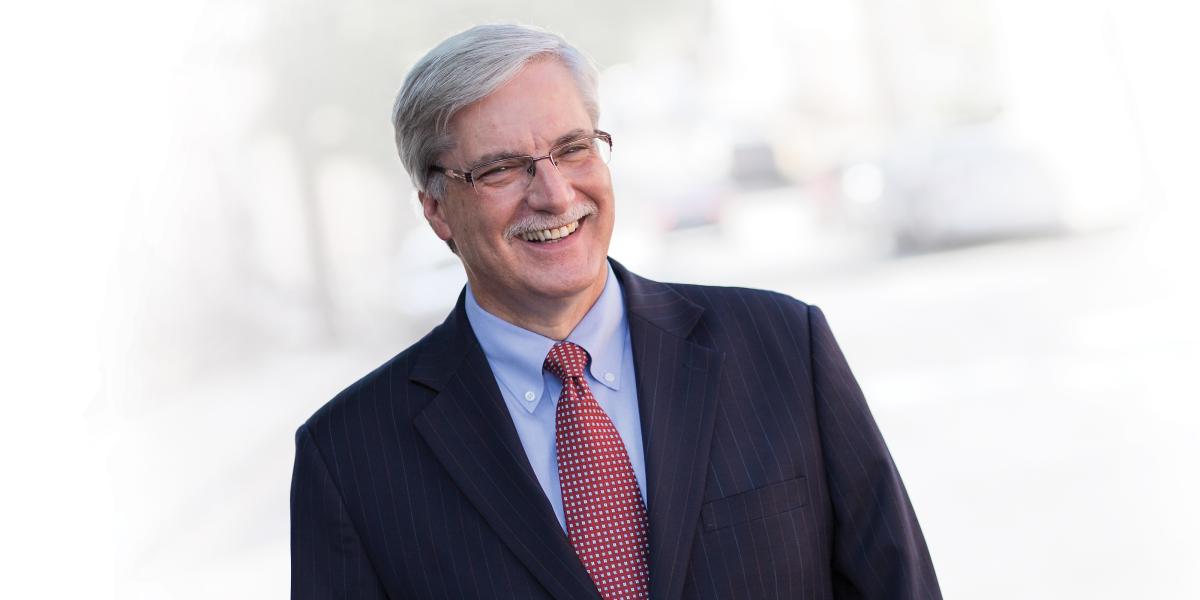Open Mike: Stephen's Legacy
Like many people who are attracted to public health, Stephen Okiria was big-hearted, smart, and committed.
Stephen Okiria did not have to be there.
He just wanted to help his co-workers. So, on the evening of July 11, he joined them at the Kyadondo Rugby Club in Kampala, Uganda. Stephen was finance administrator for the Center for Communication Programs’ AFFORD health-marketing initiative.
A couple of thousand people had come to the rugby field to watch the World Cup soccer final between Spain and the Netherlands on a giant screen. A dozen of his colleagues were there to promote condom use and distribute HIV prevention information. The team frequently traveled to such gatherings as a way to get out their lifesaving message.
As finance administrator, Stephen, 43, managed accounts, wrote checks and coordinated financial issues with the AFFORD partners. But he refused to just meet the requirements of his job. He went beyond them. He often helped the field team at health promotional events like the one on that fateful day at Kyadondo. As his former supervisor Kojo Lokko describes him, Stephen was “a people’s person” who was deeply committed to his work and to his co-workers.
Near the end of the World Cup match, two blasts ripped through the crowd. Terrorists from the Somali Islamist movement alShabab killed more than 70 people that night at the rugby field and at an Ethiopian restaurant in Kampala.
Stephen Okiria was one of the victims. We join our colleagues in Kampala in mourning the loss of an outstanding individual. Stephen and I met briefly in Kampala last November. My wife, Lucy, and I arrived at CCP’s offices one evening to find a terrific garden reception awaiting us. The team’s commitment and conviviality were equally impressive. I remember Stephen as one of many bright, capable and enthusiastic members of the team who were happy to see us.
I’ve since learned how truly exceptional he was. A devoted husband and father, he supported his wife, Sarah Kooli Okiria, and six children, ages 3 to 18. At the office, he organized an informal credit union that colleagues could contribute money to and borrow from in times of need. To encourage physical activity among his co-workers, he persuaded them to participate in Friday evening soccer matches. As Kojo has said, Stephen “drew his strength from helping people.”
Stephen was changing the world for the better. He provided critical support for a large public health initiative. AFFORD had almost completed its mission of launching a program that would transition into the sustainable, locally run Uganda Health Marketing Group. Stephen was one of the last two Hopkins AFFORD employees still working with the group. The new organization will continue to benefit from all of Stephen’s contributions and will continue to promote health in the country.
Less than two weeks before Stephen died, I was again in Kampala. World Cup soccer matches leading up to the finals were under way then. Everywhere we went, televisions and radios blared the drone of vuvuzelas. In my meetings with Ugandans, I was struck again by their optimism, openness and warmth, as well as their desire to improve their country. In that positive milieu, something as monstrous as terrorism never seemed even a remote threat.
In Stephen’s tragic death, there can be no more stark difference between what we in public health do and what terrorists do. We change the world by working with communities to protect human life. The antithesis of that is terrorism, which tries to bring about change by destroying human life.
Stephen was emblematic of the people who are attracted to public health. They, like Stephen, are big-hearted, smart and committed.
I fervently hope that Stephen Okiria’s death will not be in vain. His commitment to the health and well-being of his fellow Ugandans should be an inspiration to us all. I believe Stephen’s legacy demands that we keep on with our mission—protecting health and saving lives.
